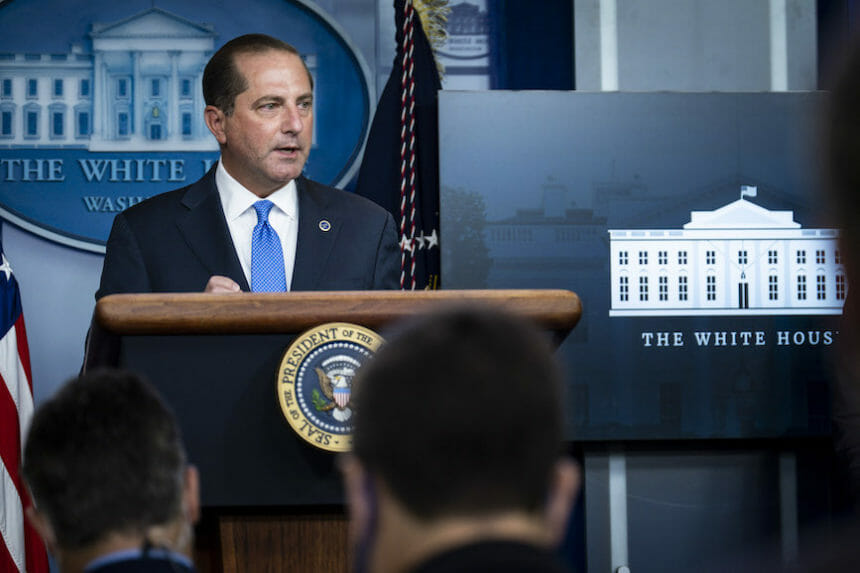WASHINGTON: The Department of Health and Human Services is planning to spend more than $250 million on a campaign to “defeat despair” and “inspire hope” amid the COVID-19 pandemic.
HHS is searching for agenies to manage what it is describing as a “public health and reopening America” COVID-19 campaign, according to documents from the public information office of the National Institutes of Health, a part of HHS.
“By harnessing the power of traditional, digital and social media, the sports and entertainment industries, public health associations and other creative partners to deliver important public health and economic information, the administration can defeat despair, inspire hope and achieve national recovery,” the documents stated.
The campaign was set to run for a base year from August through July 2021 with an optional year-long extension to July 2022. The bulk of the money is set to be spent by January 2021, according to Politico.
Its goals would include providing information on therapies and vaccines during reopening; sharing best practices for businesses to operate and instill confidence to return to work and restart the economy; distributing information on the phases of reopening and recovery; and building a coalition of spokespeople.
Ten vendors listed on an NIH website were eligible to bid for the campaign. A number of PR and marketing agencies are named as team members or partners of the vendors, such as Lyons PR with Betah Associates; Beekeeper Group, Creative Thinkers and FleishmanHillard as partners of CSR, Inc.; Young & Rubicam and Van Eperen with Fors Marsh Group; and Vanguard Communications as a partner of Scientific Consulting Group. Fleishman is also listed as a partner of Nova Research Company along with Deloitte Consulting. Hager Sharp is one of the 10 vendors.
The campaign would be divided into four parts: program management and strategy and evaluation (10%); market research (10%); message and material (PSAs) production (15%); and paid and earned media distribution (65%).
The campaign would have a “large paid traditional and digital media component,” the document stated but would also include earned media and digital and social media outreach.
In the earned media component, the winning bidder would promote, pitch, secure and place and distribute donated media for content created in the paid media campaign. Impressions from non-paid content must be tracked separately.
The digital campaign would also share content with bloggers and influencers and place HHS subject-matter experts in social media events on Facebook and Twitter. It would also develop and manage HHS-led social media events.
For the paid media portion, the document said bidders can assume they will be creating and distributing 10 PSAs per month for the first year. HHS is looking for 15-, 30- and 60-second TV spots; 30- and 60-second radio ads; vignettes; billboard, transit, theater and point of purchase out-of-home and print ads, as well as online ads and audio podcasts.
Messaging for the campaign would primarily target English and Spanish speakers, though it would also be conducted in other languages depending on research. The messaging must also match the health-literacy skills of the target audiences.
Democrats interviewed by Politico expressed surprise at the size of the contact and concern that it would be used for political messaging during an election year.
The public disclosure of the bidding process followed the ouster last week of Emily Miller, the top spokesperson at the FDA, another division of HHS, along with consultant Wayne Pines. Pines is APCO Worldwide’s president of healthcare, though he said he consulted for the government agency on his own outside of APCO’s practice, according to The New York Times.
Michael Caputo, assistant secretary for public affairs at HHS, declined to comment until the contract is awarded. Other HHS officials could not be reached for comment.
This article first appeared on prweek.com.








